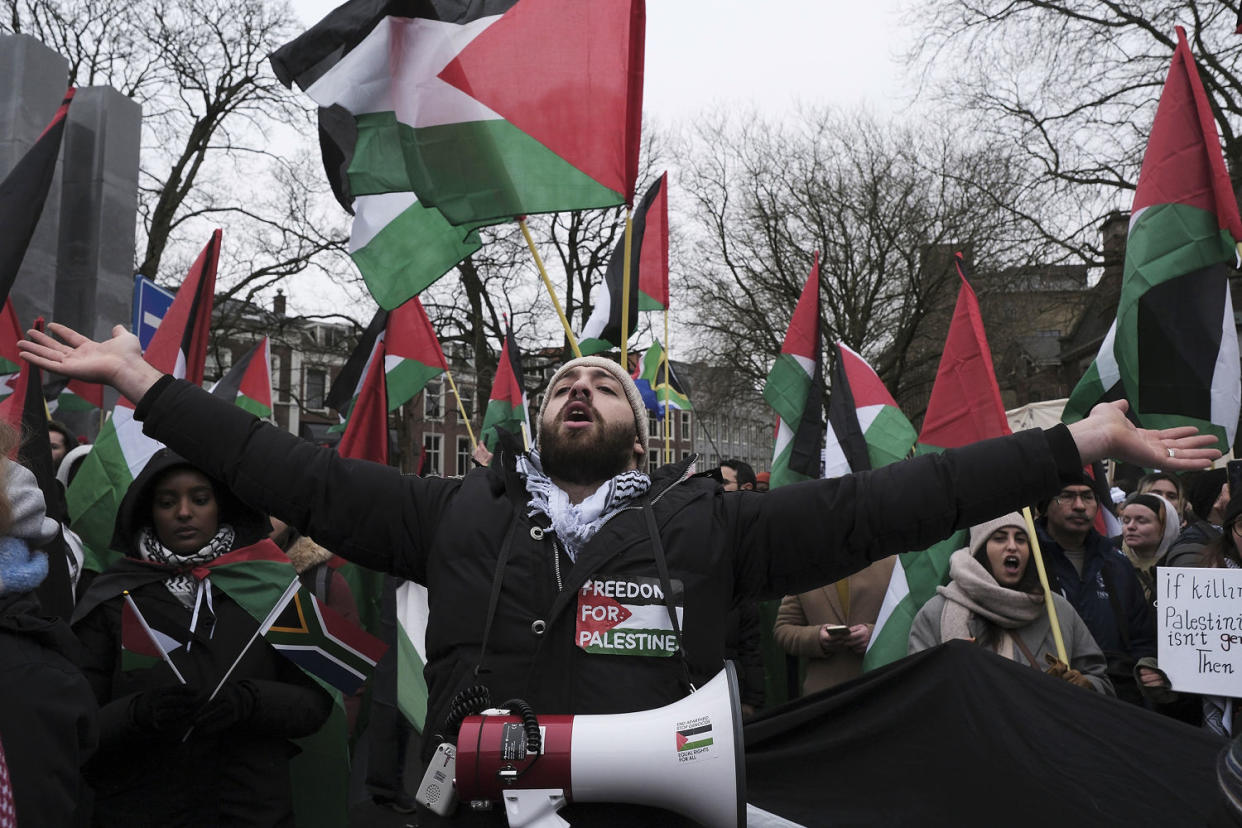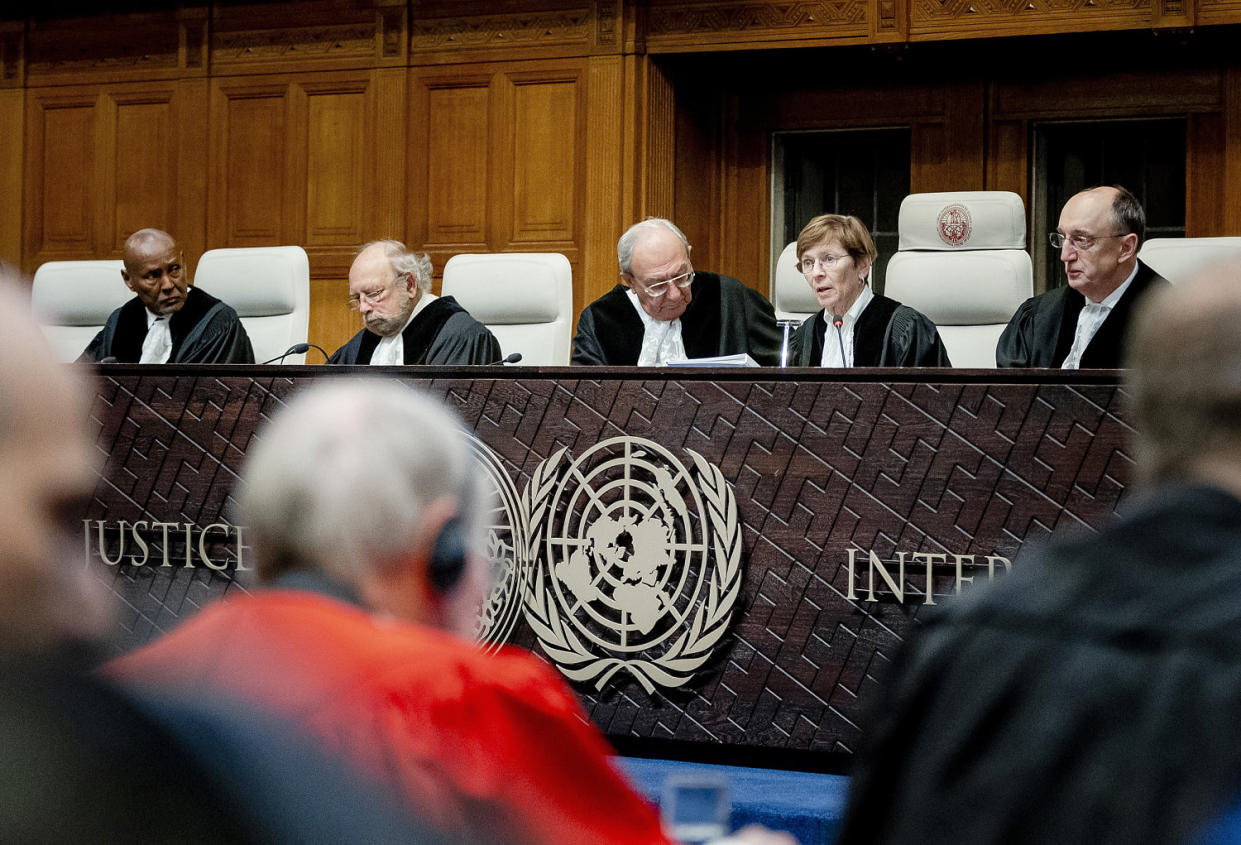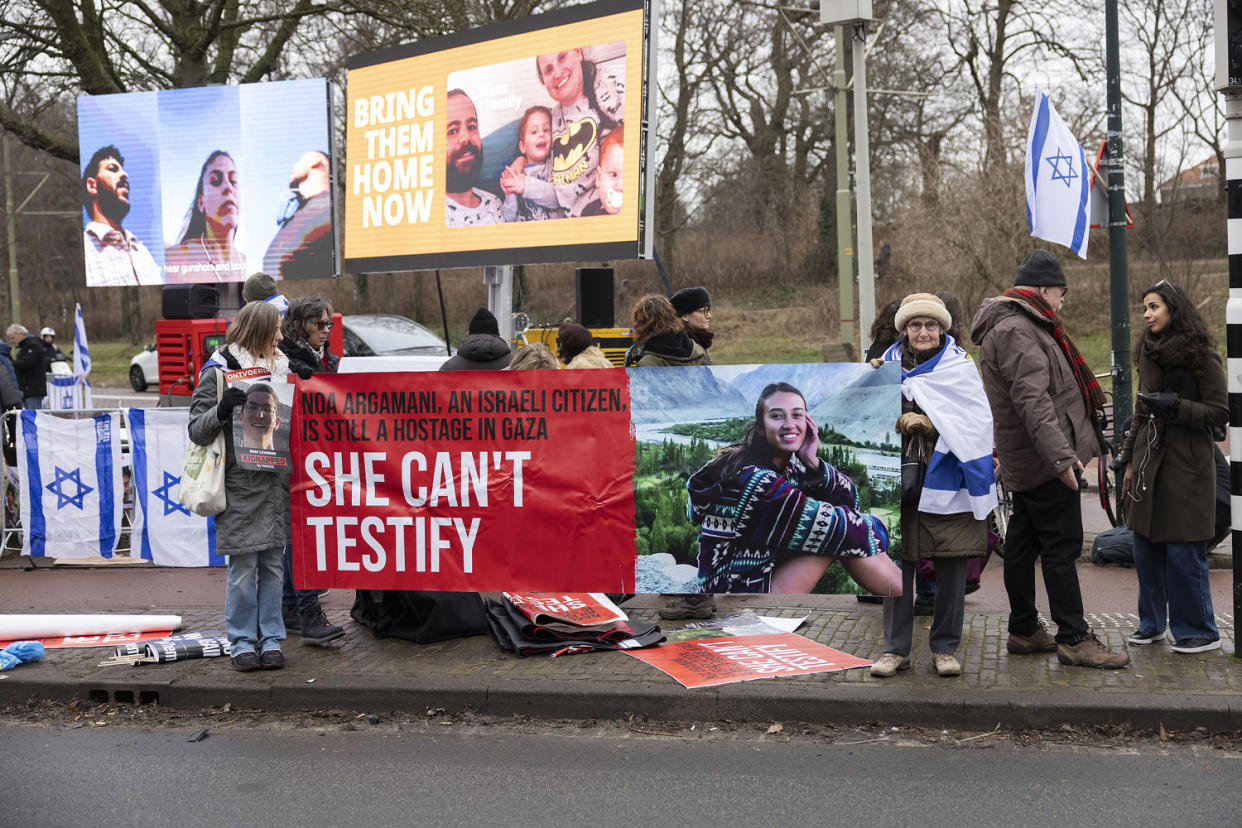What to know as Israel defends itself against genocide accusations at the U.N.’s highest court
In the gilded palace where the International Court of Justice sits in The Hague, Israel has been defending itself from accusations of genocide against Palestinians as it continues to wage war in the rubble of Gaza.
The historic case could see the United Nations’ top court order Israel to halt the fighting. Israel — which often boycotts international tribunals and U.N. investigations saying they are unfair — has pushed back on this case by sending a high-level legal team to the two-day hearing, which began Thursday in the Dutch city.
South Africa brought the case calling for the court to order an immediate halt to the country’s military operations in the Gaza Strip, which were launched after Hamas’ attacks on Oct. 7 — 100 days ago Sunday.
Israeli officials say around 1,200 people died that day and around 240 were taken hostage, although more than 100 have since been released as part of an exchange for Palestinian prisoners. More than 23,000 people have been killed in Gaza, 70% of them women and children, according to the Palestinian Health Ministry.
Although it maintains a strong trade relationship with Israel, South Africa has been a fierce critic of the military campaign in Gaza. Many, including President Cyril Ramaphosa, have compared Israel’s policies toward Palestinians in both Gaza and the occupied West Bank to South Africa’s previous apartheid regime of racial segregation. Israel has rejected such allegations.
South Africa does not have to prove Israel has breached the Genocide Convention of 1948 at this stage. It only has to show that this branch of international law is applicable. The full case could take years and it is unclear if Israel would abide by any of the court’s orders.

After Israel wrapped its defense Friday, the court’s 17 judges pledged to return their verdict “as soon as possible,” the ICJ’s president Judge Joan E. Donoghue said in her closing remarks.
“Whatever decision comes down, the results will be highly contested — and quite possibly rejected by one or even both parties,” David J. Simon, director of the genocide studies program at Yale University, said in an email after both countries had wrapped up their arguments
Here’s how the case unfolded.
South Africa’s case
On Thursday, lawyers for South Africa spent some three hours arguing that Israel has breeched the Genocide Convention — the first human rights treaty adopted by the U.N. General Assembly in 1948. It was in large part a response to the Holocaust, which saw Nazi Germany systematically kill more than 6 million people, mostly Jewish, and ultimately led to the formation Israel.
It also indicates the international community’s commitment to prevent genocide from happening again.
The ICJ can bring the case because both countries are signatories to the treaty.
The South African argument rests not only on the allegation that Israel has killed thousands of Palestinians, made their homes unlivable and denied them aid, but also that comments by figures such as Prime Minister Benjamin Netanyahu have shown genocidal intent.
“This killing is nothing short of destruction of Palestinian life. It is inflicted deliberately. No one is spared — not even newborn babies,” Adila Hassim, a lawyer on the South African team, told the court. “Genocides are never declared in advance, but this court has the benefit of the last 13 weeks of evidence that shows incontrovertibly a pattern of conduct and related intention that justifies a plausible claim of genocidal acts.”
Her colleague Tembeka Ngcukaitobi also pointed to statements by Israeli officials and lawmakers, who he said had “called for Gaza to be wiped out, flatted, erased and crushed.”
“They have deplored anyone feeling sorry for the uninvolved Gazans,” Ngcukaitobi said. He added that the Israelis had acted as though “the children of Gaza have brought this upon themselves, and that there should be one sentence for everyone there: death.”

The legal team also said Hamas’ Oct. 7 attacks — which they “unequivocally condemned” as a violation of international law — were no rationale for a retaliation that itself was a breach.
The ICJ has never found a country guilty of genocide before, although it came close in 2007, when it ruled that Serbia “violated the obligation to prevent genocide” in the July 1995 massacre by Bosnian Serb forces of more than 8,000 Muslim men and boys in the Bosnian enclave of Srebrenica.
Proving it under the convention is also notoriously difficult because it has to be shown that a state intended “to destroy, in whole or in part, a national, ethnical, racial or religious group.”
Ultimately, Simon at Yale said he thought South Africa’s case would “come down to whether the panel of judges will recognize the possibility of genocidal intent.” But he added that the court could conclude that a lot was happening in Gaza, “but none of it is necessarily likely to be related to ‘genocide.”
Israel’s response
In the past, Israel has criticized the U.N. and other international organizations as biased. But this time it has thrown itself into a full-bodied legal defense — principally because it thinks it can win, according to Israeli officials.
Israel has said it has done everything it can to protect civilians, whereas Hamas has deliberately put Palestinians in harm’s way. It has also accused South Africa of giving a one-sided portrayal of the war, focusing entirely on Israel’s actions while minimizing those by Hamas.
And Israel's lawyers have argued that South Africa has cherry-picked comments by Israeli officials in an attempt to show genocidal intent, ignoring clarifications by Prime Minister Benjamin Netanyahu and his government that such comments do not represent official policy.
“Urban warfare will always result in tragic deaths, harm and damage,” Israeli lawyer Galit Raguan said. “But in Gaza, these undesired outcomes are exacerbated because they are the desired outcome of Hamas.”
South Africa’s call for the ICJ to order a cease-fire was “frankly astonishing,” according to Christopher Stake, another of the lawyers for Israel.
This would see one side, Israel, halting its military campaign, “leaving the other party free to continue attacks, which it has a stated intention to do,” he said, referring to Hamas’ stated intention to continue assaulting Israel, a country it wants to wipe off the map.
What happens next?
The court gave no date for its decision on whether or not to order a cease-fire, only saying that it would come as soon as possible.
“The court will have to grapple with all of these claims and on a tight deadline, since decisions on provisional measures are usually given fast,” said Eliav Lieblich, an international law professor at Tel Aviv University.

If it does tell Israel to stop bombing and fighting, Israel could easily ignore this directive as the ICJ has few if any direct ways of enforcing its decisions. Russia has previously dismissed an order to pause its war in Ukraine, and the Trump administration rejected the ICJ’s 2018 ruling that sanctions against Iran must not impact humanitarian aid.
However, Israel flouting a ruling related to the Genocide Convention would be seen as a grave step in the international court of public opinion.
It could also incur U.N. sanctions, although the U.S., a permanent member of the Security Council, could veto these.
If the ICJ allows the full case to go ahead, it will be a complex argument that will likely take years.
